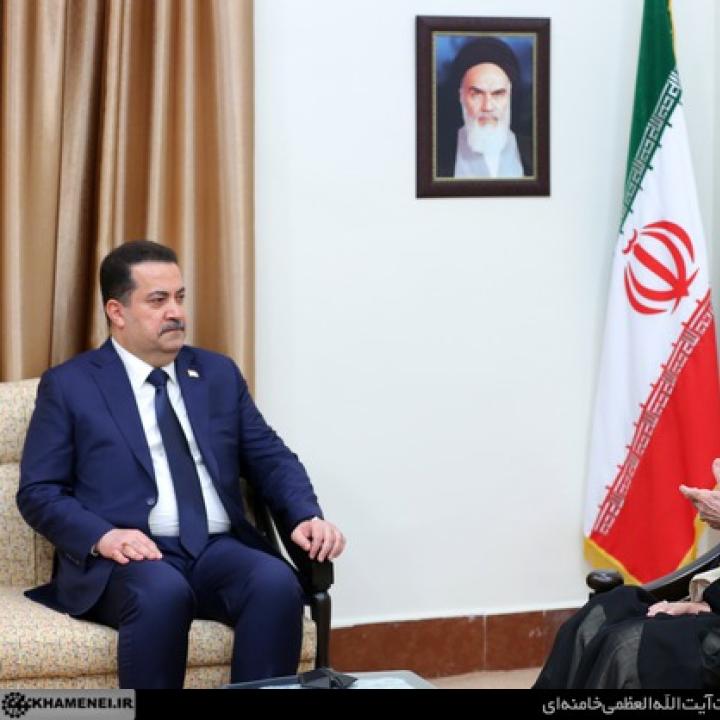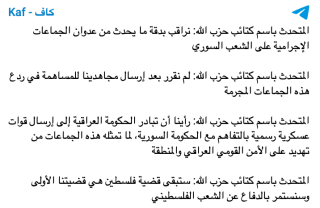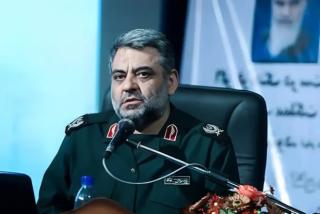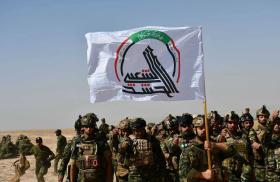

The Iraqi prime minister portrayed Baghdad's non-intervention in Syria as a sovereign decision, but Iranian leaders gave a different explanation.
Iranian and Iraqi narratives surrounding recent events in Syria reveal clear contradictions, particularly regarding the role of Iraqi muqawama (resistance) militias in efforts to preserve Bashar al-Assad’s regime. High-ranking Iranian officials offered accounts that challenged Iraqi prime minister Mohammed Shia al-Sudani’s portrayal of events, asserting that external threats rather than Sudani’s leadership ultimately limited the extent of Iraq’s involvement.
Sudani Claims to Stop the PMF from Intervening
Since the onset of Hayat Tahrir al-Sham’s campaign to overthrow Assad, Sudani’s narrative has been consistent. On December 4, just four days before Assad's fall, the prime minister told parliament, “We are facing a new reality...This is not a declamatory matter. We cannot simply make a decision and send 45 million [Iraqi citizens] into the unknown.” Sudani was likely referring to calls for authorizing Iraqi militias to cross the border under the banner of the Popular Mobilization Forces (PMF) and defend Assad's regime—an approach he described as “declamatory.”
In the late hours of December 2, an unnamed spokesperson for the prominent Iran-backed, U.S.-designated terrorist group Kataib Hezbollah (KH) had expressed its preference for this approach, stating, "We believe that the Iraqi government should...deploy official military forces in coordination with the Syrian government given the threat that [Syrian rebel groups] pose to Iraqi national security and the region" (Figure 1). When this did not work, Iran apparently considered forcing Iraqi militias to deploy in defiance of Baghdad's views.
The IRGC Version
According to the Iranian regime’s account of events, Tehran was indeed prepared to use Iraqi militias to intervene in Syria regardless of the Iraqi government's stance. Yet this plan was apparently thwarted not by Sudani, but by the threat of U.S. and Israeli airstrikes and the lack of adequate air support to enable these forces to cross the border.
In a speech delivered to Islamic Revolutionary Guard Corps members in Tehran on January 6, Brig. Gen. Behrooz Esbati—the IRGC's cyberspace chief and one of the last commanders to flee Syria—seemingly tried to bolster the regime's severely weakened morale by describing the PMF's intended role in Syria: "[Iranian] commanders met with Bashar during the eight days between the fall of Aleppo and the fall of the regime. I asked one of our very high-ranking commanders who secretly met Bashar about their meeting. He said '[Bashar] had lost his mind. I told him the forces of al-Hashd al-Shaabi [the PMF] were ready [to enter the war]. The Hashd forces were prepared to attack, but if they entered Syria, U.S. and Israeli planes would slaughter them. They needed air cover, and only the Russians could provide it.' [The high-ranking commander] said, 'I talked to Bashar for half an hour, and at the end, Bashar said, 'You yourselves talk to the Russians.'"
Khamenei Cites Lack of Safe Routes into Syria
A few weeks before Esbati’s speech, Supreme Leader Ali Khamanei gave his own take on the problem of reinforcing Assad: “We were ready in these difficult circumstances. [Commanders] came here and told me that we had prepared all of what the Syrians need today, that we were ready to go, [but] the skies were closed, the land routes was closed; the Zionist regime and the United States closed both the skies over Syria and the land routes; it was not possible.” Notably, the land and air routes that he mentioned pass through Iraq.
Iran Holds the Reins
Sudani consistently emphasizes that he holds final authority on decisions regarding war and peace in his capacity as commander-in-chief of Iraq's armed forces. Yet more than a year of militia drone and missile strikes against U.S. bases and Israel have demonstrated once again that Iran ultimately dictates Iraq's direction on these matters. Official Iranian accounts of the PMF's readiness to intervene on Assad's behalf are merely the latest manifestation of this imbalance, notwithstanding Sudani's declarations to the contrary.





